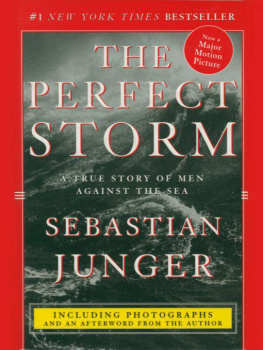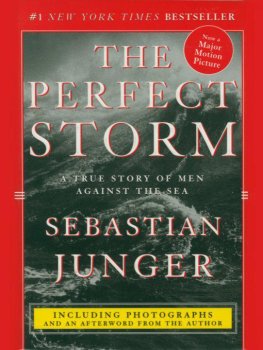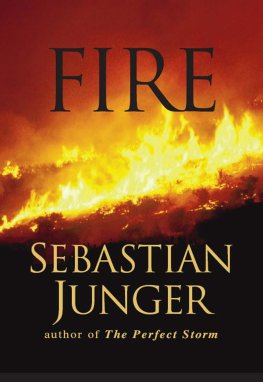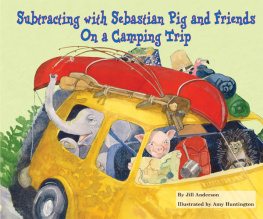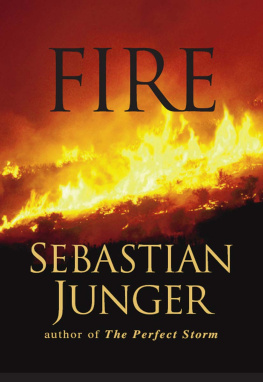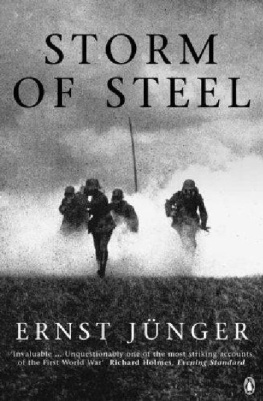Sebastian Junger - Freedom
Here you can read online Sebastian Junger - Freedom full text of the book (entire story) in english for free. Download pdf and epub, get meaning, cover and reviews about this ebook. year: 2021, publisher: HarperCollins UK, genre: History. Description of the work, (preface) as well as reviews are available. Best literature library LitArk.com created for fans of good reading and offers a wide selection of genres:
Romance novel
Science fiction
Adventure
Detective
Science
History
Home and family
Prose
Art
Politics
Computer
Non-fiction
Religion
Business
Children
Humor
Choose a favorite category and find really read worthwhile books. Enjoy immersion in the world of imagination, feel the emotions of the characters or learn something new for yourself, make an fascinating discovery.

- Book:Freedom
- Author:
- Publisher:HarperCollins UK
- Genre:
- Year:2021
- Rating:5 / 5
- Favourites:Add to favourites
- Your mark:
- 100
- 1
- 2
- 3
- 4
- 5
Freedom: summary, description and annotation
We offer to read an annotation, description, summary or preface (depends on what the author of the book "Freedom" wrote himself). If you haven't found the necessary information about the book — write in the comments, we will try to find it.
Freedom — read online for free the complete book (whole text) full work
Below is the text of the book, divided by pages. System saving the place of the last page read, allows you to conveniently read the book "Freedom" online for free, without having to search again every time where you left off. Put a bookmark, and you can go to the page where you finished reading at any time.
Font size:
Interval:
Bookmark:
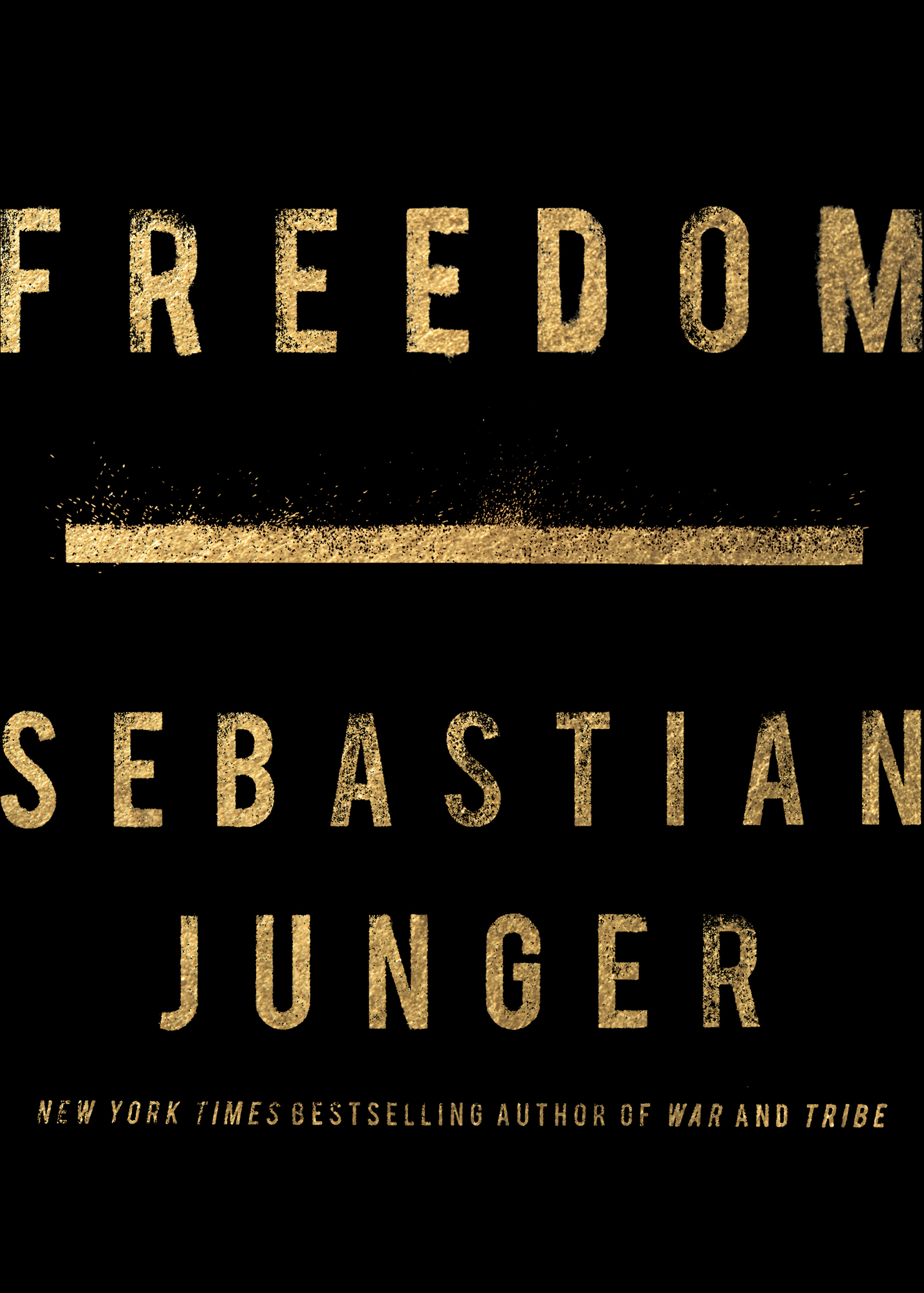
Freedom
Sebastian Junger
New York Times bestselling author of War and Tribe
Thank you for downloading this Simon & Schuster ebook.
Get a FREE ebook when you join our mailing list. Plus, get updates on new releases, deals, recommended reads, and more from Simon & Schuster. Click below to sign up and see terms and conditions.
CLICK HERE TO SIGN UP
Already a subscriber? Provide your email again so we can register this ebook and send you more of what you like to read. You will continue to receive exclusive offers in your inbox.

To my beloved family, who taught me the true meaning of freedom
As for humans, God tests them so they may know they are animals.
Ecclesiastes 3:18 (NIV)
T he change was immediate. The country opened up west of Harrisburg and suddenly we could drink from streams and build fires without getting caught and sleep pretty much anywhere we wanted. Wed walked the railroad tracks from Washington to Baltimore to Philly and then turned west at the Main Line and made Amish country by winter. The Pennsylvania fields lay bare and hard in the cold but there were seams and folds in that countrystrips of woods along stream bottoms, windbreaks between the cornfields, ridges left wild for huntingwhere a man could easily pass the night unnoticed. Once, we cooked dinner on a steep hill above the town of Christiana and went to sleep in a snowstorm listening to the clatter of carriage horses on the street below. At dawn we walked into town for pancakes and coffee and then headed on up the railroad tracks before anyone whose job it was to stop us even knew wed been there.
But outside Harrisburg, where the Juniata River runs into the Susquehanna at her great breaching of Blue Mountain, we seemed to have been simply released into the wild. Early settlers tended to push up the major rivers until they ran into the first set of waterfallsthe fall lineand those spots became jumping-off points for people who were even more desperate or adventurous. At Blue Mountain the Susquehanna drops down a series of ledges and deepens in the alluvial soil of the coastal plain, and that was where a Welsh migr named John Harris established a business poling rafts across the river in the 1730s. What was then called Indian country effectively started on the other side, and when Harriss passengers stepped ashore they found themselves in a forest of enormous hardwoods that extended almost unbroken for the next thousand miles, to the Great Plains.
They were trappers and traders and fugitives from justice and young men scouting land for their families and eventually the families themselves. Many came on heavy oak-frame wagons that were caulked like boats and carried everythingfood, tools, crockery, fabric, maybe an heirloom quiltthat the forest couldnt provide. The wagons were low-slung for stability and tented with canvas and had iron-strapped wheels six inches wide that had no shock absorbers whatsoever. The men walked with long-barreled flintlock rifles over their shoulders and the women rode if they were pregnant and walked otherwise and the children were up and down off the wagons all day long. These people made their way up the western bank of the Susquehanna, through the Blue Mountain gap, and then turned onto the Juniata, which ran fast and clear all the way from the great escarpments of the Alleghenies. She was the only river valley that led west in the entire state and became a threshold of sortsto a better life, or an early deathfor thousands of settlers who headed into the wilderness without any intention of returning.
Three hundred years later we walked through a cluster of camper-trailers between the river and some standard-gauge railroad and then climbed onto the tracks themselves. We could hear trucks downshifting on the last hill before Harrisburg on Route 22, across the river. It was late April, and the Juniata was running fast and full in the spring flood, an occasional tree rolling in her current that had been undercut along the banks and toppled. She flowed between ridges that looked too steep to climb and ran compass-straight for miles. There were creeks for fresh water and floodwrack for firewood and woods so thick you could practically sleep within sight of a church steeple or police station and no one would know.
It struck us as serious country, the kind where you kept an eye on the weather and slept next to whatever weapon you had. All we had was a machete but after dark we all knew where it wasusually thunked into a tree somewhere central. Gunfire occasionally bounced off the shelf rock and detritus of the upper ridges and one morning an A-10 thundered through so low that we could almost make out the pilot in the cockpit. Not two days walk from Harrisburg we passed a sign nailed to a tree that warned the federal government that the property would be defended by any means necessary. There were meth addicts in some of the towns and black bears up on the ridges and the remains of old locks and canals along the river that almost looked ready to be returned to good use if history ever required it.
We walked single file on the cinder maintenance road that ran between the trackbed and the river. Creeks chased down off the ridges like they were fleeing something. Swarms of gnats worked the sunlight and bass boats spun past on the current below us. Where the tracks ran straight we saw trains from a mile or more, headlights boring toward us like fierce little suns, but even on the curves we often had a sense that a great force was headed our way. The trains were so heavy and fast that they seemed to set the whole world in motion, vibrating the air and raising a strange pitch from the rail that fell at the edge of human hearing. We got so attuned out there that wed know a train was coming without even knowing how we knewbut we knew. Wed step into the underbrush and sit on our packs and some of us would roll a cigarette or drink water and wed wait for the beast to come through. Freights moved at familiar speeds and took a full minute to go by, but the passenger trains could hit 140 and walloped past so suddenly, they just left us in a vortex of dead leaves and trash.
We took ten-minute breaks every hour and walked all afternoon. Occasionally in the distance wed see a pickup truck nose out onto the tracks at an ungated farm road and then bounce across. Once we saw a car stopped in the middle of a bridge a mile or so ahead, and we put our binoculars on it to make sure it wasnt a cop. (It is illegal to trespass on railroad property, and on high-speed lines it is even considered a national security issue.) At the end of the day we came to an old quarrystone kiln at a place called Bailey Run, where a creek sawed through a ridge and ran under the tracks into the Juniata. The water was ice cold and filtered through the chert and limestone of the country and tasted as though civilization was still something in the future. We walked up the creek and made camp in a little stand of sycamore and hemlock that was nestled into the curve of a ridge. The only way to see our cookfire was to come down on us quietly through the woods at night, but we had a dog and that wasnt going to happen, either.
Juniata means standing stone in what used to be the Native languages of the area. Standing stones were granite or sandstone pillars that were driven into the ground to mark the center of a tribes territory. The earliest mention of the name appears on maps drawn by Dutch traders who visited Chesapeake Bay in the 1600s and wrote Onojutta Haga on the spot where the Juniata empties into the Susquehanna. Haga means people in Mohawk, and Onojutta means protruding stone. Other recorded versions of the word include Chenegaide, Yuchniada, and Choniate; Europeans were at pains to write Native words because the languages sounded so alien.
Font size:
Interval:
Bookmark:
Similar books «Freedom»
Look at similar books to Freedom. We have selected literature similar in name and meaning in the hope of providing readers with more options to find new, interesting, not yet read works.
Discussion, reviews of the book Freedom and just readers' own opinions. Leave your comments, write what you think about the work, its meaning or the main characters. Specify what exactly you liked and what you didn't like, and why you think so.

